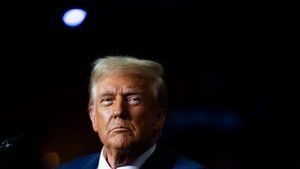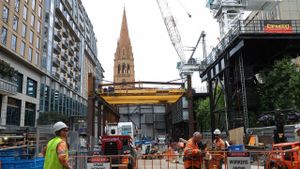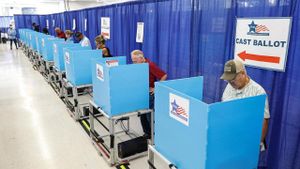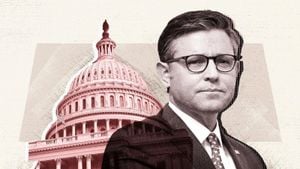Former President Rodrigo Duterte’s highly-anticipated testimony before the House of Representatives turned out to be anything but festive, igniting fierce emotions rather than closure for families of victims of his controversial drug war. On November 13, as Duterte faced the quad committee investigating extrajudicial killings, the air was thick with tension and the weight of pain borne by mothers who lost their children during police operations. Amidst the proceedings, Mary Ann Domingo, who lost both her husband and son to police violence, expressed her disillusionment, stating, “Dapat masaya ako na masasabi niya ang totoong ginawa niya, pero sa bandang huli parang talo pa rin kami.” This sentiment spilled over as families of other victims gathered to hear the former president’s account. Their hopes for accountability clashed with the reality of his testimony, which many saw as evasive and detached.
That day, representatives repeatedly called for order, utilizing one-minute suspensions to cut off Duterte whenever he strayed from the topic or started to speak over lawmakers. Committee chairperson Ace Barbers was left with no choice, needing to rein him back to maintain some semblance of decorum. Duterte’s crafty responses often sparked heated debates and accusations, including remarks about the International Criminal Court (ICC) investigation he faces. He whimsically suggested the ICC should “hurry up,” then later contended, “one must know when he’s joking,” deflecting serious inquiries with humor. This careful dance around responsibility led to frustration among committee members and supporters of the victims.
For many present, the hearing was not just political theater but also deeply personal. Dalia Cuartero, who lost her son Jesus during a police drug bust, could barely contain her emotions. Upon entering the hearing room, tears streamed down her face as she anticipated the man responsible for policies leading to her family’s tragedy. This was not just another committee meeting for Cuartero; this was her chance to confront the architecture of pain inflicted on her family and countless others. Her emotions mirrored those of other grieving mothers present, reflecting the broader national sentiment surrounding Duterte’s violent anti-drug campaign.
Adding to the fiery atmosphere was former Senator Antonio Trillanes IV, who did not hold back, challenging Duterte's integrity and accusing him of using the hearings as another opportunity for self-promotion. The intensity escalated when Duterte nearly lost his cool, uncharacteristically resisting the urge to curse and instead gesturing animatedly with the microphone as if ready to confront Trillanes. Observers noted the irony of the notorious foul mouth of Duterte struggling to remain composed under scrutiny.
Despite Duterte’s attempts to maintain control, it was clear he struggled with the gravity of the accusations hurled his way. His legal counsel had to intervene at numerous points, attempting to shape his narrative and curtail instigations, but the dynamic remained chaotic. His remarks often aimed to position himself as the victim of political persecution rather than accepting any culpability for the thousands of deaths attributed to his administration's drug war policies.
Interestingly, the nature of the questioning often forced him to reflect on his legacy, prompting moments of uncomfortable silence during which the haunting stories of victims echoed around the room. This was palpable when mothers behind him shared their heartbreaking stories. For many, the hearing represented both hope for justice and the stark reminder of grief. It’s not just about Duterte’s past – it’s about the scars left on countless families.
The quad committee’s hearing was emblematic of the complexity of post-Duterte Philippines; on one hand, the fallout from his presidency continues to shape the political environment, and on the other, the nation grapples with the human cost of policies executed under the guise of law and order. It’s no wonder tension was palpable during Duterte’s testimony – each word he uttered was met with pointed looks and murmurs from those who had lost loved ones to his war on drugs. Indeed, every point brought up about Duterte’s statements led to debates about accountability, the rule of law, and the mechanics of power.
At the heart of the issue remains the stark divisions within the Philippine populace. Many view Duterte as a populist hero who brought apparent control and order, but for families like those of Cuartero and Domingo, he’s synonymous with loss and injustice. Each testimony during the hearing is not simply historical; it resonates with very personal stories of love, loss, and the fight for stability. The harrowing testimonies by family members shatter any veneer of heroism surrounding his policies. Laws were not just guidelines; they became instruments of violence and fear.
But it wasn’t just the anguish of families present at the hearing. Even lawmakers seemed divided—some were visibly sympathetic to the grieving families and urging for accountability, whilst others just appeared to want the session to end without addressing the more brutal realities of the drug war. Some politicians expressed weariness over what they considered political theatrics, claiming the hearings had become more of a show than a genuine path toward accountability. The convoluted intersections of grief, politics and accountability created a maelstrom of frustration not just for the audience but also for the lawmakers involved.
The quad committee hearing aimed not just to interrogate Duterte but to bring attention to the systematic abuses committed under his administration. It encouraged civil society members to seek redress and to remind the country of its dark days under his leadership. Yet, even as the hearings are broadcasted live, many fear whether they will actually yield tangible results or if they will become another footnote in the annals of Philippine political history, much like many Davao killings and their political ramifications. The cries for justice echo, but how far will they resonate within the political corridors of power?
Days after the hearing, discussions on social media are filled with mixed reactions. Some mourn the futility of the investigation, echoing sentiments of despair shared by families, claiming commitment to justice seems like mere rhetoric. Meanwhile, others still cling to hope, believing this could be the starting point for change, urging the public to engage more with the process. Yet, the question remains whether accountability can truly be achieved amid heavy political theatrics and systemic challenges within the justice system.
And what of the future? Those who stood before Duterte during the hearings carry not only their grief but hope for justice. It’s unclear whether the nation can heal from the wounds of the past, but what is certain is the transformation each mother feels with their voices finally being amplified within formal institutions. For many witnesses, it’s about reclaiming power through testimony, even if their loved ones can’t be with them to witness justice served. Perhaps their narratives may pave the way toward healing, but the road will likely remain long and challenging.
Consequently, it will require collective action from civil society, lawmakers, and the broader populace, pushing for reforms to address the issues stemming from the dark legacy of the Duterte administration. Rather than dissipate, these efforts need to solidify if they’re to truly represent the Philippine public’s demand for accountability and justice. Now, as the hearings continue and Duterte remains under scrutiny, the nation holds its breath, watching to see how this chapter of justice unmasks itself, and whether it will lead to genuine reform or simply serve as another political spectacle.



